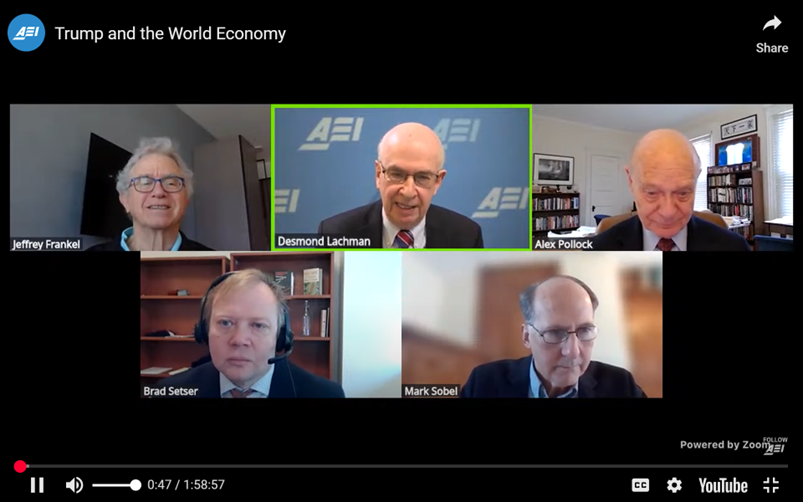From Steve Kamin, two pieces: [1] [2]. A succinct summary:
So all told, Miran’s suggested options to lower the dollar while containing interest rates would be ineffectual, destabilizing, and ultimately for no good purpose. In his conclusion, he acknowledges some of these risks, but argues that because of Trump’s focus on financial markets, “I therefore expect that policy will proceed in a gradual way that attempts to minimize any unwanted market consequences…” Well, if the past few weeks of trade policy are any indication, be afraid . . . be very afraid!
From Kamin and Sobel in the FT, “Mar-a-Lago Accord, Schmar-a-Lago Accord
Anatomy of a bad idea”:
…there has been no announcement by the Trump administration or even a tweet by Trump, but Miran’s paper — along with various utterances by Treasury Secretary Scott Bessent — have led Wall Street observers to believe such an initiative is indeed in the offing.
And that’s too bad, because a Mar-a-Lago Accord would be pointless, ineffectual, destabilising, and only lead to the erosion of the dollar’s pre-eminent role in the global financial system.
Some thoughts on screen, from Jeff Frankel (see his commentary), Brad Setser, Mark Sobel and Alex J. Pollock, here:
Mark Sobel speaks at min 32:30.
Torsten Slok/Apollo (March 9) asks three questions:
For markets, this raises three questions:
1) The changes that are required to existing US manufacturing production, including eliminating Canada and Mexico from all auto supply chains, will take many years. Can the US achieve the long-term gain without too much short-term pain?
2) Globalization has for decades put downward pressure on US inflation. Will a more segmented global economy with a much bigger manufacturing sector in the US put too much upward pressure on US inflation, given the higher wage costs in the US than in many other countries?
3) With tariffs being implemented, the rest of the world may over time begin to decrease its reliance on US markets and also increase their own defense spending. Under such a scenario, what are the incentives for the rest of the world to sign a Mar-a-Lago Accord?


